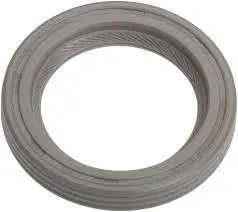8 月 . 19, 2024 11:49 Back to list
Neoprene Flange Gasket Specifications and Applications in Industrial Settings
The Benefits and Applications of Neoprene Flange Gaskets
Neoprene flange gaskets are essential components in various industrial applications, valued for their reliability and resilience under a range of operating conditions. Constructed from neoprene, a synthetic rubber, these gaskets offer several advantages that make them an excellent choice for sealing flanged joints in piping systems, automotive applications, and other mechanical assemblies.
What is Neoprene?
Neoprene, or polychloroprene, is a versatile material known for its exceptional chemical stability and flexibility. It possesses a unique combination of properties, including resistance to oils, solvents, and temperature fluctuations. These characteristics make neoprene an ideal material for manufacturing gaskets, particularly in environments that require a durable and flexible seal.
Advantages of Neoprene Flange Gaskets
1. Chemical Resistance Neoprene gaskets provide an effective barrier against various chemicals, making them suitable for use in a wide range of industries, including petrochemical, food and beverage, and water treatment. Their resistance to oils and solvents ensures that they maintain a tight seal even when exposed to harsh substances.
2. Temperature Tolerance Neoprene can withstand a range of temperatures, typically from -40°F to 200°F (-40°C to 93°C). This makes it ideal for applications that involve fluctuating temperatures, such as engine components or HVAC systems, where maintaining a proper seal is critical to system performance.
3. Durability Neoprene flange gaskets exhibit excellent resilience and longevity. They can withstand wear and tear, making them suitable for high-pressure applications. The durability of neoprene results in fewer replacements and maintenance requirements, which can lead to significant cost savings over time.
4. Ease of Installation Neoprene gaskets are lightweight and flexible, allowing for easier handling and installation compared to more rigid materials. Their flexibility helps accommodate minor irregularities on sealing surfaces, ensuring a snug fit that minimizes the risk of leaks.
neoprene flange gasket

5. Cost-Effectiveness Compared to other gasket materials, neoprene is relatively inexpensive while still offering great performance. This affordability makes it a popular choice across various sectors, particularly for projects with budget constraints.
Applications of Neoprene Flange Gaskets
Neoprene flange gaskets are used in numerous applications, reflecting their versatility
- Piping Systems In industrial piping systems, neoprene gaskets are used to seal flanged joints, providing a leak-proof connection between pipes. Their chemical resistance allows them to be utilized in systems that transport aggressive fluids.
- Automotive Industry Neoprene gaskets are commonly found in automotive applications, such as sealing oil pans, valve covers, and exhaust systems. Their ability to withstand high temperatures and exposure to oil makes them a reliable choice for these components.
- HVAC Systems In heating, ventilation, and air conditioning (HVAC) systems, neoprene gaskets help create airtight seals, improving energy efficiency and overall system performance.
- Marine Applications Due to their resistance to water and salt, neoprene gaskets are also used in marine applications, including boat engines and other equipment that operates in wet environments.
Conclusion
Neoprene flange gaskets play a crucial role in ensuring the reliability and efficiency of various systems across multiple industries. Their chemical resistance, temperature tolerance, durability, and cost-effectiveness make them a favored choice among engineers and maintenance professionals. As industries continue to evolve and demand higher standards of performance, neoprene gaskets will remain an integral component in achieving those goals, demonstrating the importance of quality materials in engineering applications.